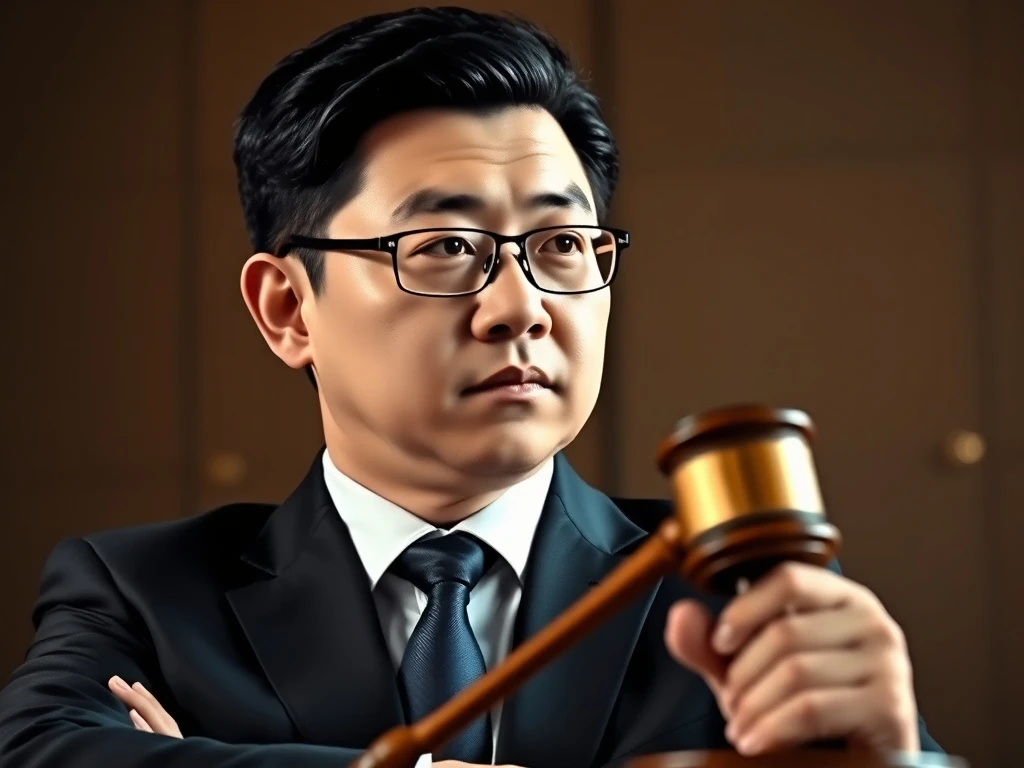Changpeng Zhao Fights Back: Dismissal Sought in Pivotal FTX Lawsuit

The cryptocurrency world is closely watching a significant legal development. Changpeng Zhao, the influential founder of Binance, recently sought to dismiss a substantial FTX lawsuit. This ongoing dispute involves a staggering $1.8 billion claim. The outcome of this high-stakes crypto legal battle could establish crucial precedents for digital asset firms globally. Many industry observers are following the proceedings intently, as it directly impacts perceptions of accountability within the blockchain ecosystem.
Unraveling the $1.8 Billion FTX Lawsuit
FTX, now operating under bankruptcy proceedings, alleges a fraudulent transfer. It claims a $1.8 billion share buyback deal in 2021 was funded with misused customer assets. This accusation forms the core of their legal action against Zhao, Binance, and other former executives. FTX’s legal team aims to maximize returns for creditors. They argue that the exchange, along with its founder Sam Bankman-Fried, knew it lacked sufficient funds for the repurchase. Therefore, they supposedly used customer deposits to complete the transaction.
However, Binance founder Changpeng Zhao has a different perspective. He filed a motion in a Delaware bankruptcy court, requesting the dismissal of the lawsuit. Zhao contends that the suit unfairly blames him for the actions of Sam Bankman-Fried. Bankman-Fried, notably, received a 25-year prison sentence following his high-profile fraud conviction. Zhao’s defense highlights key points regarding jurisdiction and the nature of the transaction itself.
Jurisdiction and the Contested Share Buyback Deal
Zhao’s argument emphasizes the extraterritorial nature of the transaction. He claims that “every pertinent part” of the share repurchase deal occurred outside the United States. For instance, the Binance entities involved were based in Ireland, the Cayman Islands, and the British Virgin Islands (BVI). Similarly, Alameda Ltd, the FTX-linked firm, also operated from the BVI. Therefore, Zhao asserts that U.S. statutes, which lack extraterritorial application, do not apply to this case. This jurisdictional challenge is a central pillar of his defense.
Furthermore, the share buyback deal involved specific cryptocurrencies. These included Binance USD (BUSD), a stablecoin created by Binance, and FTX Token (FTT), which FTX created. Zhao’s legal team states, “Plaintiffs do not allege that Mr. Zhao received or possessed dominion over the exchanged cryptocurrency.” They clarified that Zhao was not a direct transferee. Instead, he was “merely a ‘nominal counterparty’ in the transfer.” This distinction is crucial for his defense against the fraudulent transfer allegations.
CZ’s X Posts and FTX’s Downfall: A Different Perspective
The lawsuit also touches upon Zhao’s social media activity. FTX previously claimed that Zhao’s posts on X (formerly Twitter) contributed to its dramatic collapse. In November 2022, after CoinDesk reported on FTX’s FTT holdings, Zhao announced Binance would sell its FTT. FTX interpreted this as a deliberate attempt to trigger customer withdrawals and destabilize the company. Later, Zhao also posted about a potential acquisition of FTX by Binance, a deal that quickly fell through. These posts became a point of contention.
However, Zhao firmly denies that his posts caused FTX’s implosion. He argued in his motion that FTX was inherently a “fraudulent enterprise.” He asserted, “Even if Mr. Zhao’s social media posts contributed to the timing of the FTX downfall, FTX had no right to exist and certainly no right to persist in fraud indefinitely.” His lawyers further contended that holding Zhao liable would resemble blaming a whistleblower for exposing a Ponzi scheme. This argument forms a critical part of his defense in this complex crypto legal battle.
Broader Legal Challenges for the Binance Founder
This is not the only legal challenge related to the FTX collapse. Binance, the exchange Zhao founded, also sought dismissal of FTX’s lawsuit in May. Binance argued that the suit was “legally deficient.” It maintained that FTX’s downfall resulted solely from it being “one of the most massive corporate frauds in history.” This aligned with Zhao’s personal defense. The court will consider these collective motions as the legal proceedings advance.
Additionally, FTX sued two former Binance executives: Samuel Wenjun Lim, the ex-chief compliance officer, and Dinghua Xiao, who held various roles. Both executives also asked the court last month to dismiss the lawsuit against them. This indicates a coordinated defense strategy among the former Binance leadership. Changpeng Zhao himself served four months in prison last year after pleading guilty to money laundering charges. Meanwhile, Sam Bankman-Fried’s appeal against his conviction and sentence is scheduled for November. The ongoing FTX lawsuit and related legal actions highlight the intensified scrutiny on major players in the cryptocurrency industry.









